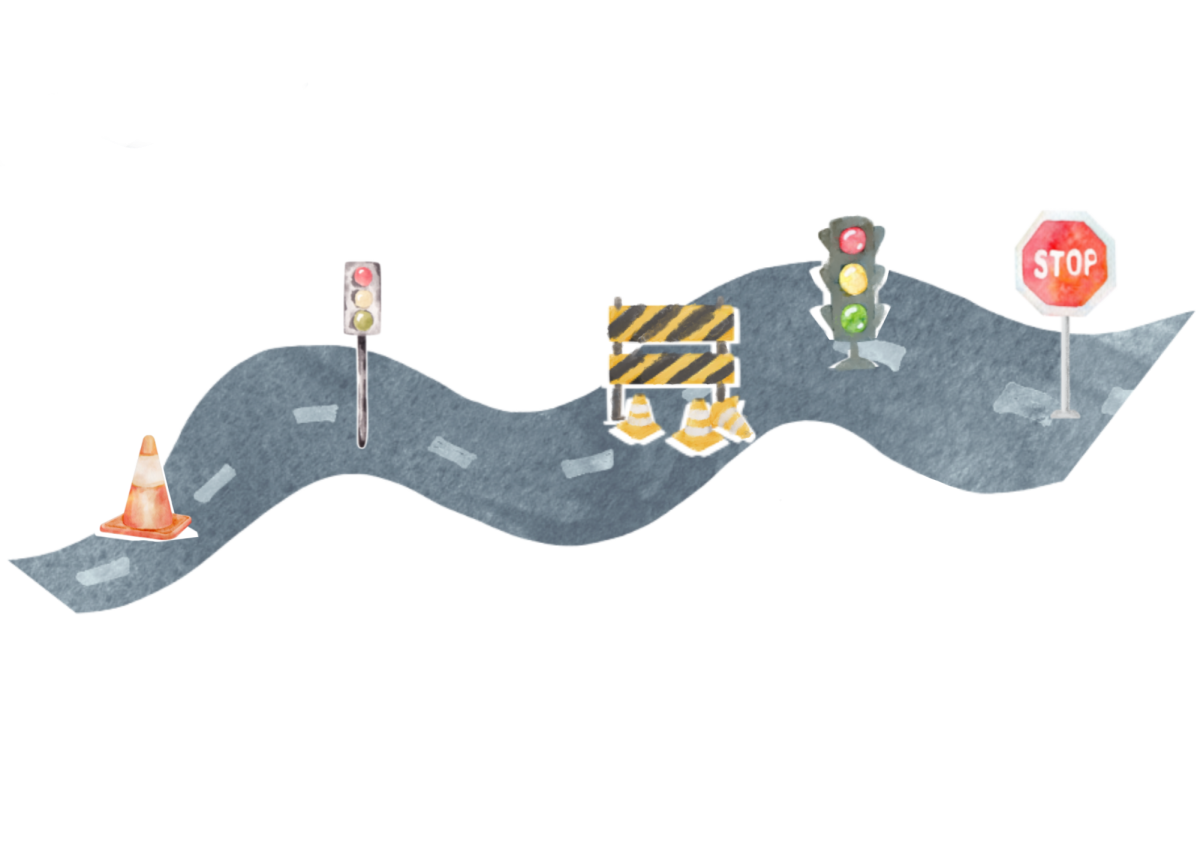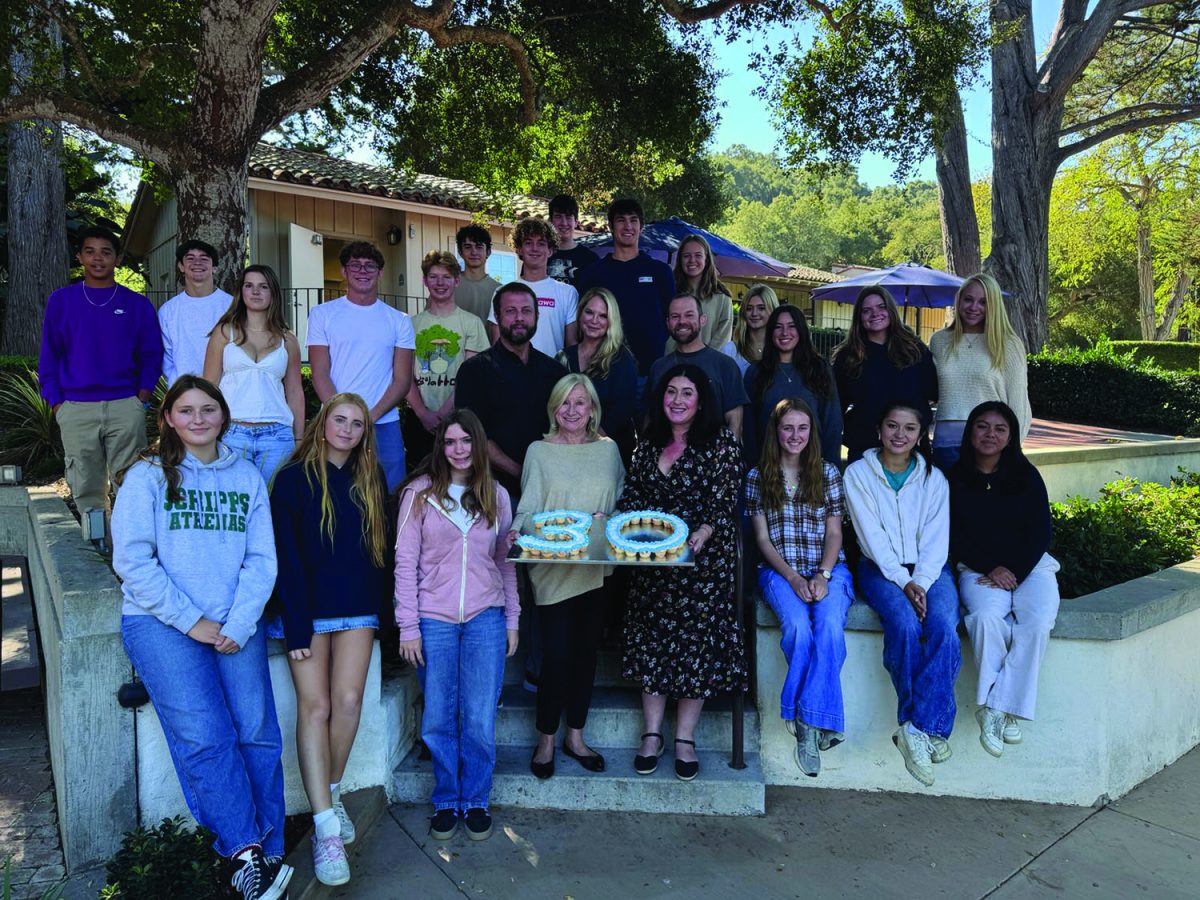The Gift of Education
April 6, 2022
We live in an unequal society. Whether it is based on race, income, or nationality, the social, economic, and governmental systems in the United States and the world are biased.
Many of our readers are privileged in terms of socioeconomic status. In addition to the wealth of the Laguna community, students have access to the gift of education.
Education is one of the most powerful tools. We get jobs to make a living and contribute to society through learning. As time has progressed, the standard of education evolved.
Our parents could find a job easier than we can with just a bachelor’s degree.
Going back even further, a high school diploma would be enough for a job in the 1950s.
A Laguna education is a gift. “The teachers are super supportive, and in general, the whole staff. I would say the education you get here is amazing,” junior Fiona Schroeder said. “With all of the resources, it’s just great the education you can accomplish here.”
Our community is lauded for its commitment to scholarship, balance, and character by parents and students alike.
“I feel very prepared for the future, and I feel that I have a tool set that will guide me gracefully through college and university and whatever comes next,” junior Claire Kellet said.
Once in college, alumni agree that their Laguna educations serve them well.
“I feel that my Laguna education has given me the tools to advocate for myself and seek help and guidance when I need it, which is especially important at a bigger school like University of Vermont,” alumna Grace Fitzpatrick ‘2020 said. “And after college, I know that this tool will be equally important.”
A Laguna education is exceptional owing in part because it is a small independent school where deeper relationships can be formed with teachers and advisors. “We have much smaller class sizes, so you get a lot of one-on-one teacher time, a lot more access to college counselors,” senior Julianna Seymour said.
These bonds not only increase the level of understanding but also can provide confidence in a student.
“I’ve formed such strong relationships with my teachers and peers because of experiences from the small classrooms and the close community at Laguna, and these relationships have definitely stayed with me through college,” Grace said.
Education is a gift, but it’s not a gift equally available to everyone. More money affords one a better education, at both the high school and college level, so what happens to the people who can’t pay?
“Just going to Laguna, we have access to a private college counselor. We have one counselor per 35 to 45 students, where at some schools it’s hundreds of students, or they don’t have [college counselors] at all,” senior Mike Janey said.
“In the general student body, we’re very privileged in what we can do. We have access to all of these things—college counseling, tutoring, all of these advantages. We have more opportunities to explore our interests.”
Educational inequality is so deeply rooted in systemic issues that it may seem impossible to solve.
Families who can’t afford to live in a good school district subsequently can’t send their child to the best public school, let alone send their child to an independent school with tuition costing tens of thousands of dollars annually.
Without individualized attention from teachers, abundant resources, and enough support, students might not be prepared to enter selective colleges or to even apply out of fear of the price tag.
And so, they might end up not going to college at all for fear of the cost or lack of encouragement and support.
Therefore, most likely, they will not be able to secure a stable, high enough paying job, which is increasingly concerning, especially considering the rise in tuition of colleges and independent high schools.
Student loans are prevalent in the United States and can put people into debt for years.
Because of the increasing standard of education in our world, jobs don’t come as easily to people with a bachelor’s degree as they once did.
Having a college degree doesn’t necessarily result in a job.
And so, what’s the solution? Our society can’t exist the way it is now, but there isn’t an easy answer.
The first thing that people often think of is to lower college tuition. But this doesn’t solve the issue.
First, what would the logistics of lowering college tuition be?
Second, this solution doesn’t acknowledge that the issue is dependent on other factors; and different facets are dependent on it.
Lowering the price of college will reduce the cost of independent schools, which calls for a more standardized education system in the United States.
Following in the model of some of the happiest and most educationally successful countries in the world, such as Finland, the United States must adopt a free education system that does not cost a dime to provide education up until adulthood.



































